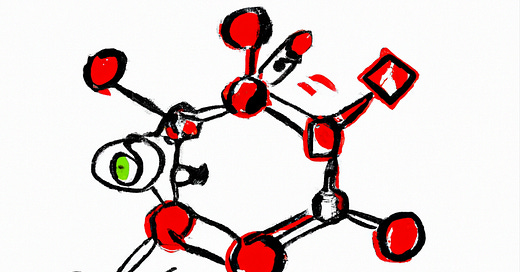The New Science of Caffeine—9 Big Findings
Caffeine and fat burning, pregnancy, fitness, and more.
Post summary
Like all topics in the health world, the topic of caffeine is rife with good and bad information.
A new, sweeping review investigated the most common claims around caffeine.
We're diving into the nine that are most relevant to your life. We'll cover:
Whether coffee dehydrates you.
If pregnant women should avoid caffeine.
If you should wait 90 to 120 minutes to ingest caffeine after waking up to prevent an afternoon crash.
Whether caffeine eventually stops working if you drink it often.
Whether caffeine burns fat and how much it takes.
If caffeine can cause depression and anxiety.
Whether caffeine can kill you.
If there are people for whom caffeine doesn't work (non-responders).
If caffeine improves fitness, and a plan for using it to your advantage.
Housekeeping
Full access to this post—which is important for anyone who drinks caffeine—is for Members. Become a Member below.
We save you more time and money than the monthly cost.
Podcast preview (the full Member podcast is below)
The post
Caffeine profoundly impacts our lives and days—90 percent of people consume it daily.
Because caffeine-containing products are such a big industry, there's a lot of information, studies, and theories about caffeine. Some of them are good, and others are bad.
For example, you've probably heard that morning coffee dehydrates you. Or that you should wait 90 minutes after waking up to drink caffeine. Or that caffeine can improve your fitness performance. Or ... you get the point.
With claims like that in mind, a team of international researchers recently selected some of the top ideas and theories about caffeine. They reviewed all the research and reached conclusions.
Today we're diving into caffeine and that team's most useful findings.
You'll learn which information around caffeine is B.S., and which you can use to think, work, and perform better.
Let's roll ...
1) Caffeine dehydrates you
Verdict: Mostly a myth. Unless you drink a lot. And even then, it may not matter.
You've probably heard that coffee makes you pee more, and, in turn, dehydrates you. That idea is based on some old, poorly constructed studies.
New research is showing otherwise.
For example, one study had a group of people drink four mugs of coffee daily for three days. Then the group did a "washout" period. Next they drank an equivalent amount of water over another three days.
Along the way, scientists measured their urine to track hydration. The scientists found:
No differences were found in voided urine volume, urine specific gravity (USG), 24-hour urinary voided volume, and urine osmolality.
The scientists bluntly titled the study "No evidence of dehydration with moderate daily coffee intake."
At the same time, one small study found that large doses of caffeine—over 500mg a day—led to more water loss. But that's a lot of caffeine and the water loss wasn't enough to matter.
2) There are people for whom caffeine doesn't work
Verdict: Probably false.
You may have heard that as many as a third of people are "non-responders" to caffeine, meaning the drug does nothing for them.
That figure comes from an old study with many shortcomings. In fact, when another team of scientists re-ran that study's numbers, they discovered that only 5 percent of the study participants could have possibly been non-responders. And, the scientists concluded, it's possible that those 5 percent just needed a higher dose.
TL;DR: Everyone responds to caffeine in some way, with some people needing more or less to get the same effect.




